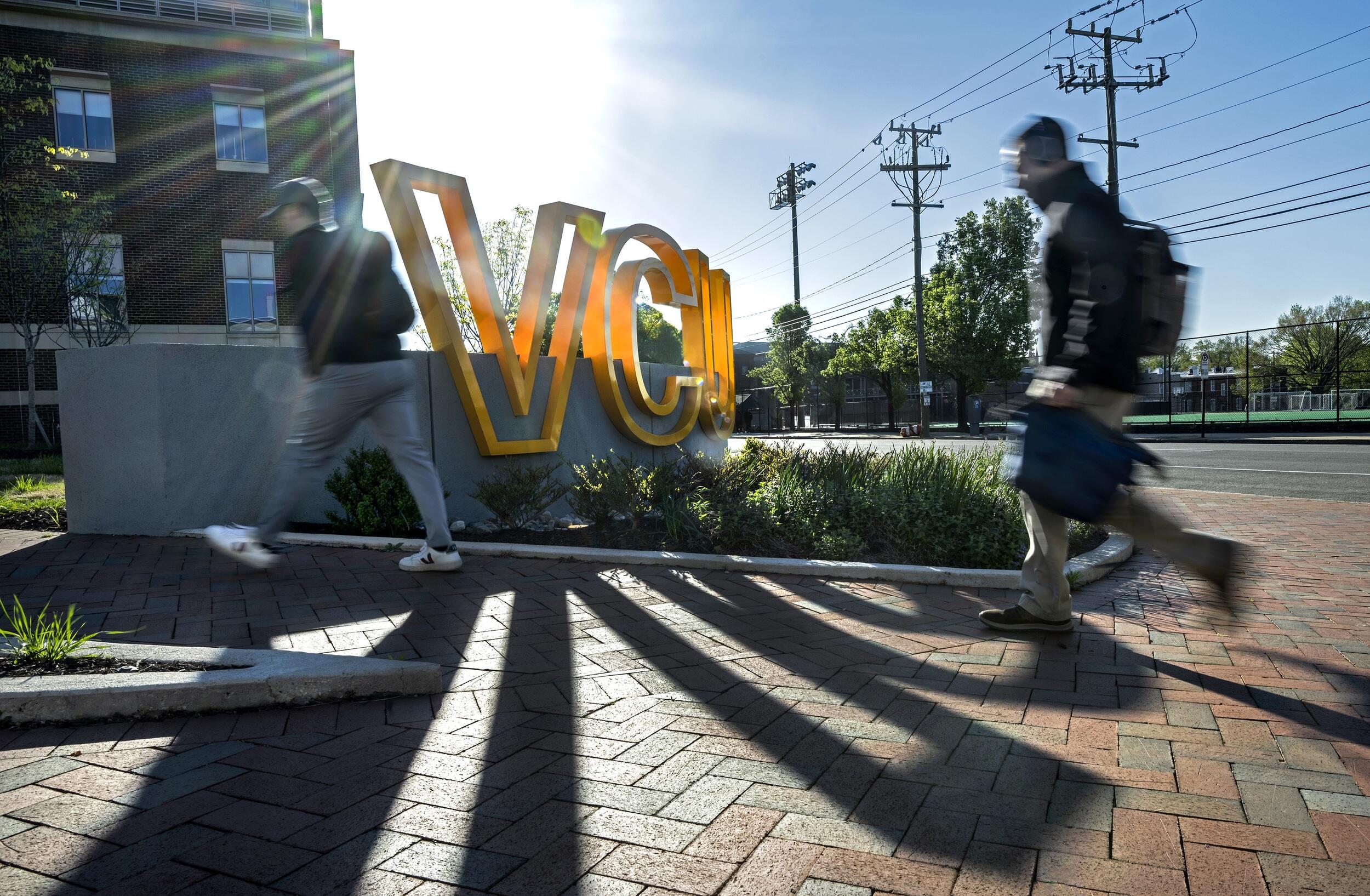
April 19, 2024
VCU hosts webinars to recognize and combat Islamophobia and antisemitism
Hosted by VCU’s Division of Inclusive Excellence, the webinars for the VCU community are part of an effort to create spaces for education, understanding and respectful communication.
Share this story
In a pair of universitywide webinars this week, Virginia Commonwealth University students, faculty and staff heard from experts about how to recognize and combat Islamophobia and antisemitism
Organized by the Division of Inclusive Excellence, the two 90-minute virtual sessions are part of a comprehensive strategy to develop educational spaces at VCU that foster healthy and constructive dialogue and broaden appreciation for diversity of experience, perspective and thought. Each session will soon be available on the division’s website.
The first, “Understanding Muslim Identity and Islamophobia,” was held Wednesday and was led by Amer F. Ahmed, Ed.D., an organizational strategist and co-founder of Equip Inclusive.
Ahmed’s presentation provided an overview of Islam, addressing myths and reality; a discussion of Islam and culture; a history of Islam; and a history of Islamophobia and post-9/11 hate crimes in the U.S., as well as his personal experiences with microaggressions and anti-Islamic bias.
“Islamophobia [is] an exaggerated fear, hatred and hostility towards Islam and Muslims — and I’d add, those perceived as Muslim — that is perpetuated by negative stereotypes resulting in bias, discrimination and the marginalization and exclusion of Muslims from social, political and civic life,” he said, noting that Islamophobia can include equating Muslims with terrorism, making them a “political football in presidential world politics,” a lack of media representation, and framing discussion and perceptions of Muslims in an us versus them context.
He details several recent Islamophobic incidents across the country, noting that the Council on American-Islamic Relations received a total of 3,578 complaints of bias and discrimination in fall 2023.
“Nothing is more concrete for me than what happened three blocks from my office here in Burlington, Vermont, and less than two blocks from our campus, where three young Palestinian-descended students from Brown University, Trinity College and Haverford College were shot [in November 2023],” he said. “It’s really hard for me to put into words what that experience was like. It was the most challenging week of my career and really ever. It’s been challenging since it had a tremendous impact on our community.”
The second webinar, “Addressing Antisemitism,” was held Thursday and was led by Naomi Greenspan, director of the Improving the Campus Climate Initiative at the Academic Engagement Network, an organization that mobilizes faculty and university administrators to counter antisemitism through education and civil discourse.
Greenspan’s presentation focused on providing an understanding of Jewish history and identity and of what anti-Jewish bias looks like in the world today so that they can more effectively identify and address it.
“Ideas about Jewish power and evil are still pernicious and prevalent, and can lead to both actual and cultural violence,” she said. “And these assumptions about Jews structure many of our conversations. So in our political conversations today, there are assumptions about Jewish financial power, economic power, Jewish privilege, Jewish racial otherness, whiteness, Jews as a generalizable monolith, Jewish imperialism. These are often unconscious biases that people may hold without even realizing them because they’re so baked into our culture. And what this means is that from both the right and the left, political discourse is increasingly saturated with ideas about Jews.”
She noted that 2023 saw a 140% increase in antisemitic incidents in the U.S. compared to the previous year, marking the highest year on record since tracking began.
“Incidents have taken place in all 50 states, with the highest numbers in those states with larger Jewish populations. And we also see antisemitism taking place on campus, including harassment, vandalism and assault,” she said. “In the fall of 2023, three of four Jewish students on campus reported experiencing or witnessing antisemitism. So the numbers are alarming.”
Greenspan said her talk was being given at a fraught time. “College campuses in the United States have in many ways become a proxy battle for the Israel-Hamas War,” she said. “Both Jews and Muslims are experiencing a rise in antisemitism and Islamophobia and have a lack of sense of safety. And with so much pain and suffering among both communities, this heightens our emotions and can make these topics really difficult to address.”
In both webinars, Ahmed Greenspan said Islamophobia and antisemitism should be viewed as a form of racism.
“When we talk about racism, we should include it when we’re talking about it on our campuses and wherever we’re engaging issues related to racism,” Ahmed said. “We need to do trainings like this. We need to include anti-Muslim prejudice and Islamophobia when we’re engaging in issues around racism and bullying in our campus gatherings. We need to work towards addressing bias and misrepresentation in our curriculums.”
Within the VCU community, there have been concerns about feelings of isolation, unsafety and being targeted due to race, religious identity, ethnicity or personal beliefs, said Brooke Berry, interim associate vice president for strategic initiatives, inclusion and belonging in the Division of Inclusive Excellence.
“There are many complexities and intersections around identity, especially about religious, spiritual and secular identities. Hatred toward any one group is a threat to us all and undermines our collective values as an institution,” she said. “We wanted to create spaces for education, understanding and respectful communication, especially around antisemitism and Islamophobia. We acknowledge the pain experienced by many within our community and are committed to recognizing and addressing this hurt.”
Subscribe to VCU News
Subscribe to VCU News at newsletter.vcu.edu and receive a selection of stories, videos, photos, news clips and event listings in your inbox.









